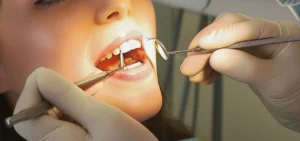Mouthwash, also known as mouth rinse or oral rinse, is a liquid product used to rinse the mouth for various oral health benefits. In this comprehensive guide, we’ll delve into everything you need to know about mouthwash, including its types, functionality, benefits, importance, proper usage, frequency, and more.
Understanding Mouthwash:
Mouthwash is a liquid solution that is swished around the mouth and then spit out after use. It typically contains active ingredients such as antimicrobial agents, fluoride, and other additives that help to kill bacteria, freshen breath, and promote overall oral health.
Types of Mouthwash:

Antibacterial Mouthwash:
Antibacterial mouthwash contains ingredients such as chlorhexidine or cetylpyridinium chloride, which help to kill bacteria and reduce plaque and gingivitis. It is often recommended for individuals with gum disease or those at risk of developing oral infections.
Fluoride Mouthwash:
Fluoride mouthwash contains fluoride, a mineral that helps to strengthen tooth enamel and prevent cavities. It is recommended for individuals at high risk of tooth decay or those with a history of cavities.
Cosmetic Mouthwash:
Cosmetic mouthwash contains ingredients such as essential oils, menthol, and flavorings that help to freshen breath and leave a pleasant taste in the mouth. While cosmetic mouthwash may provide temporary relief from bad breath, it does not offer the same oral health benefits as antibacterial or fluoride mouthwash.
Natural Mouthwash:
Natural mouthwash is made from natural ingredients such as essential oils, herbal extracts, and baking soda. It is free from artificial colors, flavors, and preservatives, making it a popular choice for individuals seeking a more eco-friendly and chemical-free option.

The Importance of Mouthwash:
Mouthwash plays a crucial role in maintaining good oral hygiene by killing bacteria, freshening breath, and promoting overall oral health. Regular use of mouthwash can help to reduce plaque and gingivitis, prevent cavities, and leave your mouth feeling clean and refreshed.
How to Use Mouthwash Properly:
Proper mouthwash usage is essential for achieving effective results and maintaining optimal oral hygiene. Follow these steps to ensure you’re using mouthwash correctly:
Choose the Right Mouthwash:
Select a mouthwash that suits your specific needs and preferences, such as antibacterial for gum health, fluoride for cavity prevention, or cosmetic for fresh breath.

Measure the Correct Amount:
Pour the recommended amount of mouthwash into a measuring cup or cap. Avoid using more mouthwash than directed, as this can lead to unnecessary waste and may cause irritation.
Swish and Gargle:
Swish the mouthwash around your mouth for 30 to 60 seconds, making sure to cover all areas of the mouth, including between the teeth and along the gumline. Gargle the mouthwash in the back of your throat to reach the tonsils and throat.
Spit Out the Mouthwash:
After swishing and gargling, spit out the mouthwash into the sink. Avoid swallowing mouthwash, as it may contain ingredients that can be harmful if ingested in large quantities.
Do Not Rinse with Water:
Avoid rinsing your mouth with water immediately after using mouthwash, as this can dilute the effects of the mouthwash. Instead, wait 30 minutes before eating or drinking to allow the mouthwash to fully penetrate and provide maximum benefits.
How Often Should You Use Mouthwash:
The frequency of mouthwash use depends on your individual needs and preferences, as well as the type of mouthwash you’re using. In general, most dental professionals recommend using mouthwash once or twice a day, after brushing and flossing, to complement your oral hygiene routine.
Additional Tips for Effective Mouthwash Usage:
Use as Directed:
Follow the instructions provided on the mouthwash label for proper usage and dosage.
Avoid Alcohol-Based Mouthwash:
If you have dry mouth or sensitive gums, consider using an alcohol-free mouthwash to avoid irritation.
Consult Your Dentist:
If you have any questions or concerns about using mouthwash, consult your dentist or dental hygienist for personalized recommendations.
In conclusion, mouthwash is a valuable tool for maintaining good oral hygiene and promoting overall oral health. By choosing the right type of mouthwash for your needs and using it properly, you can keep your mouth clean, fresh, and free of oral health issues. For more information on mouthwash or to schedule a dental appointment, contact Dr. Veners today.






